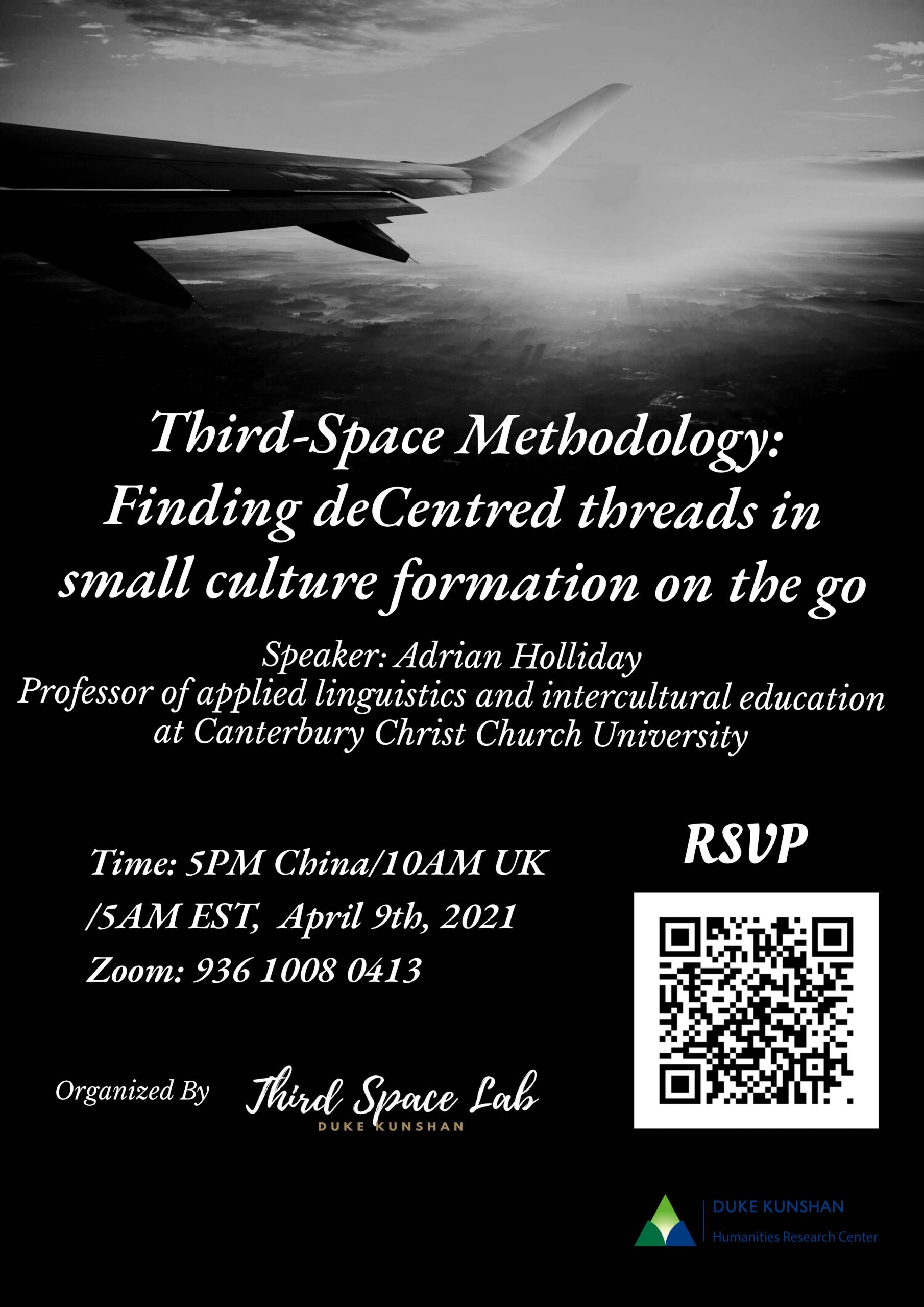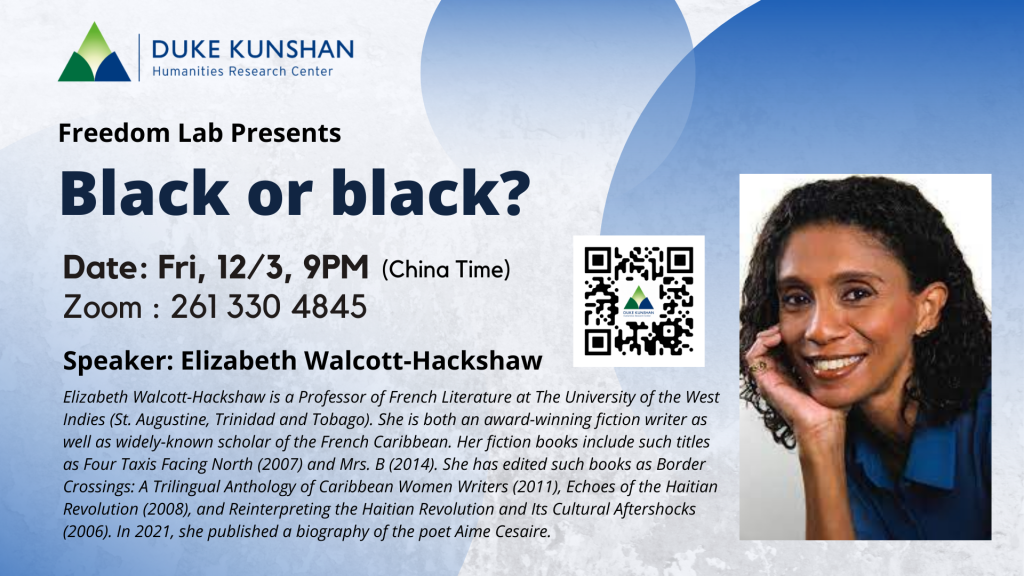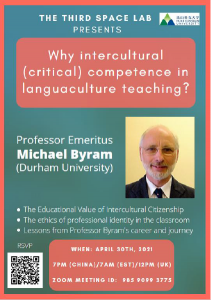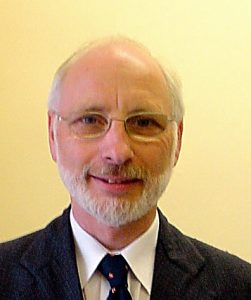
Dear all,
You are cordially invited to the guest lecture of the Third Space Lab by Dr. Adrian Holliday (Canterbury Christ Church University). We hope you will join us!
Please RSVP here: https://duke.qualtrics.com/jfe/form/SV_dbs44bUulnr63NY
Date: April 9th, 2021
Time: 5 pm (China time)/5 am (EST)/10 am (UK time)
Zoom Meeting ID: 936 1008 0413
Third-space methodology: Finding deCentred threads in small culture formation on the go
The biggest barrier to intercultural travel is its framing as between large, national or civilisational ‘cultures’. This framing falsely claims, for example, that (a) Western and Eastern people are essentially different to each other because their behaviour and values are determined by these separate large ‘cultures’, and that (b) learning a second language requires the native-speakerist activity of learning a second large ‘culture’. This large-culture approach originates from a racist, structural-functionalist, Orientalist, Centre, Western grand narrative that falsely separates the world into superior individualist and inferior collectivist ‘cultures’. It therefore creates essentialist blocks that pull us apart.
Intercultural travel instead requires deCentred threads. This is not learning the ‘other culture’. Although we are brought up differently in our national systems, with different histories, practices and architectures, we share everyday, common, hybrid, underlying, intercultural experience ‘on the go’ such as going to school for the first time, visiting friends’ families, and joining new work and leisure groups. This existing underlying intercultural competence needs to be recalled as the best resource for engaging with more distant intercultural realities. However, ‘us’-‘them’ prejudice is everywhere and makes us vulnerable to blocking large-culture grand narratives. Third-space methodology is the hard and uncomfortable, intersubjective work of rooting out and putting aside prejudice in a new, deCentred, decolonising, thinking-as-usual. We can then see culture as creative, flowing, changing, hybrid, boundary dissolving and figurative, rather than confining and separating.
About the speaker
Adrian Holliday is a professor of applied linguistics and intercultural education at Canterbury Christ Church University. After completing his Bachelor’s in sociology in 1971 and beginning his career as a teacher of English, History, Economics and Sociology in London, he embarked on a six-year international experience as an English teacher and then English program manager in Iran, from 1973 to 1979. After returning to the UK and completing a masters degree at Lancaster University, from 1980-1985, he was involved in setting up the English for Special Purposes Centre at Damascus University in Syria. This is now the successful Higher Languages Institute. Then, in 1985-1990, Professor Holliday was involved in a national university curriculum project in Egypt which comprised 18 universities across the country. The experiences during this project provided him material for his Ph.D. at Lancaster University, which he received in 1990. He headed the Graduate School at Canterbury Christ Church University from 2002-2017, providing academic management for research degrees, and was a program director for the Ph.D.s in Applied Linguistics and in Education. He also chaired the British Association of TESOL Qualifying Institutions and helped set up the British Institute of English Language Teaching. Throughout his career, he has been developing his thinking and writing around the relationship between the individual, culture and social structures. His long-standing relationship with Iran and the Middle East has provided him with an awareness of the global politics which surround these relationships.
This event will be recorded and posted on the Third Space Lab’s Sakai site for all to view.










